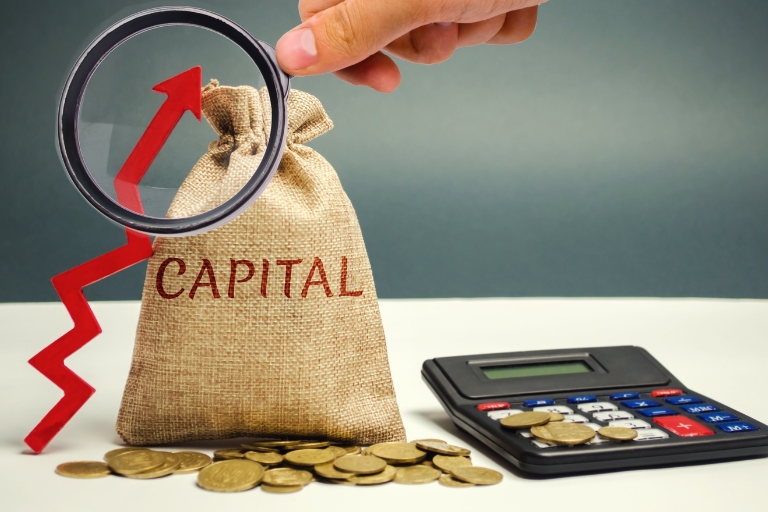Welcome, dear reader, to the wild and wacky world of Capital Gains Tax! Yes, you read that right. We’re about to embark on a thrilling journey through the labyrinth of Business Tax Services, where numbers are our friends and tax codes are the secret language we’re about to decipher. So, buckle up, grab your calculator, and let’s dive into the exhilarating realm of Capital Gains Tax!
Now, you might be thinking, “Capital Gains Tax? Isn’t that something my accountant handles while I’m busy running my business?” Well, yes, but understanding the basics can save you a lot of headaches (and potentially money) down the line. So, let’s unravel this financial mystery together, shall we?
What is Capital Gains Tax?
Imagine you’re a pirate. You’ve just sold your beloved parrot for a hefty sum of gold doubloons. That extra money you’ve made? That’s a capital gain, my friend! And the tax you owe on it? You guessed it, that’s Capital Gains Tax! In less swashbuckling terms, Capital Gains Tax is a tax on the profit you make when you sell something (an ‘asset’) that’s increased in value. It’s the gain you make that’s taxed, not the amount of money you receive.
But don’t start counting your doubloons just yet! There are certain exceptions and allowances, and not all assets are subject to Capital Gains Tax. So, before you start selling off your treasure, let’s dig a little deeper into the specifics.
Types of Capital Gains
Not all capital gains are created equal. There are short-term capital gains, which are assets held for a year or less before being sold. These are typically taxed at your normal income tax rate. Then there are long-term capital gains, which are assets held for more than a year before being sold. These are usually taxed at a lower rate. Think of it as a reward for your patience!
But wait, there’s more! There are also collectible capital gains (like that rare comic book you sold), unrecaptured section 1250 gains (don’t worry, we’ll get to that), and small business stock gains. Each has its own tax rate and rules. It’s like a game show, but with more paperwork!
Capital Gains Tax Rates
So, how much of your hard-earned treasure will you have to fork over to the taxman? Well, that depends on a few factors. Your tax rate can vary based on your income, the type
of asset, and how long you’ve held it. It’s a bit like a choose-your-own-adventure book, but with more math.
For example, in the U.S., long-term capital gains tax rates can range from 0% to 20%, while short-term capital gains are taxed at your regular income tax rate. But remember, these rates can change, so it’s always a good idea to check with a tax professional or, at the very least, a reliable internet search.
How to Calculate Capital Gains Tax
Now that we’ve covered the basics, let’s move on to the fun part: math! Don’t worry, we’ll keep it simple. To calculate your capital gains tax, you’ll need to know three things: the cost basis of your asset (what you originally paid for it), the sale price, and your tax rate.

Subtract the cost basis from the sale price to get your capital gain. Then, multiply that by your tax rate to get your capital gains tax. It’s like a math problem from school, but with real-world consequences!
Adjustments to Cost Basis
But wait, there’s a twist! Sometimes, you can adjust your cost basis. This can happen if you’ve made improvements to the asset (like adding a golden beak to your parrot), or if you’ve inherited the asset. This can change the amount of your capital gain, and therefore, the amount of tax you owe.
For example, if you bought your parrot for 10 doubloons, spent 2 doubloons on a golden beak, and then sold it for 20 doubloons, your capital gain would be 8 doubloons (20 sale price – 12 adjusted cost basis), not 10. This means less tax for you, and more doubloons in your pocket!
Capital Losses
But what if you sell your asset for less than you paid for it? That, my friend, is a capital loss. And while it might be a bummer, it can actually help you at tax time. You can use capital losses to offset capital gains, reducing the amount of tax you owe. It’s like a consolation prize for your financial misfortune.
For example, if you sold one asset for a gain of 10 doubloons, but sold another for a loss of 5 doubloons, you could subtract the loss from the gain, leaving you with a net
capital gain of 5 doubloons. This means less tax for you, and a silver lining to your financial cloud.
Exceptions and Allowances
Now, let’s talk about the fun stuff: exceptions and allowances. These are like the secret cheat codes of the tax world, allowing you to keep more of your treasure. But like all good cheat codes, they come with rules and limitations.
For example, in the U.S., you can exclude up to $250,000 ($500,000 for married couples) of gain on the sale of your home, as long as you meet certain criteria. There are also allowances for gifts and inheritances, retirement accounts, and more. It’s like a treasure hunt, but with more paperwork!
Annual Exempt Amount
First up, we have the annual exempt amount. This is a fancy way of saying that you can make a certain amount of capital gains each year without having to pay any tax. It’s like a get-out-of-jail-free card, but for taxes.
In the U.S., this amount can change each year, so it’s always a good idea to check the current rates. And remember, if your total capital gains are less than this amount, you won’t owe any capital gains tax. It’s like a tax-free shopping spree, but with assets instead of shoes!
Capital Gains Tax on Property
Next, let’s talk about property. If you sell your main home and make a profit, you might be able to exclude some or all of it from your capital gains. This is known as the home sale exclusion, and it’s like a golden ticket for homeowners.
But like all good things, there are rules. You must have lived in the home for at least two of the last five years, and you can’t have used this exclusion in the last two years. But if you meet these criteria, you could exclude up to $250,000 ($500,000 for married couples) of your gain. It’s like a home run in the game of taxes!
Capital Gains Tax and Business
Now, let’s talk business. If you’re a business owner, you might be wondering how capital gains tax affects you. Well, wonder no more! We’re about to break it down for you.
First, it’s important to know that businesses can have capital gains and losses, just like individuals. If your business sells an asset for more than its cost basis, that’s a capital gain.
If it sells an asset for less, that’s a capital loss. And just like with individuals, capital losses can be used to offset capital gains.
Capital Assets and Business
So, what counts as a capital asset for a business? Well, it can be a variety of things. It could be property, like land or buildings. It could be equipment, like computers or machinery. It could even be intangible assets, like patents or copyrights.
But not all assets are capital assets. Inventory, for example, is not a capital asset. Neither are accounts receivable. These are considered ordinary assets, and any gain or loss from their sale is considered ordinary income or loss, not a capital gain or loss.
Section 1231 Assets
Now, let’s talk about Section 1231 assets. These are a special type of asset that can be both a capital asset and an ordinary asset. Confused? Don’t worry, we’ll explain.
Section 1231 assets are depreciable property and real property (like land and buildings) used in a trade or business and held for more than one year. If you sell a Section 1231 asset for a gain, it’s treated as a long-term capital gain. But if you sell it for a loss, it’s treated as an ordinary loss. It’s like having your cake and eating it too, but with taxes!
Final Thoughts on Capital Gains Tax
Well, there you have it, folks. We’ve navigated the treacherous waters of Capital Gains Tax and lived to tell the tale. We’ve learned about types of capital gains, how to calculate them, exceptions and allowances, and how it all applies to businesses.
Remember, understanding Capital Gains Tax can help you make informed decisions about selling assets and planning for your financial future. So, keep this guide handy, and you’ll be ready to face the taxman with confidence. Now, go forth and conquer the world of business tax services!


